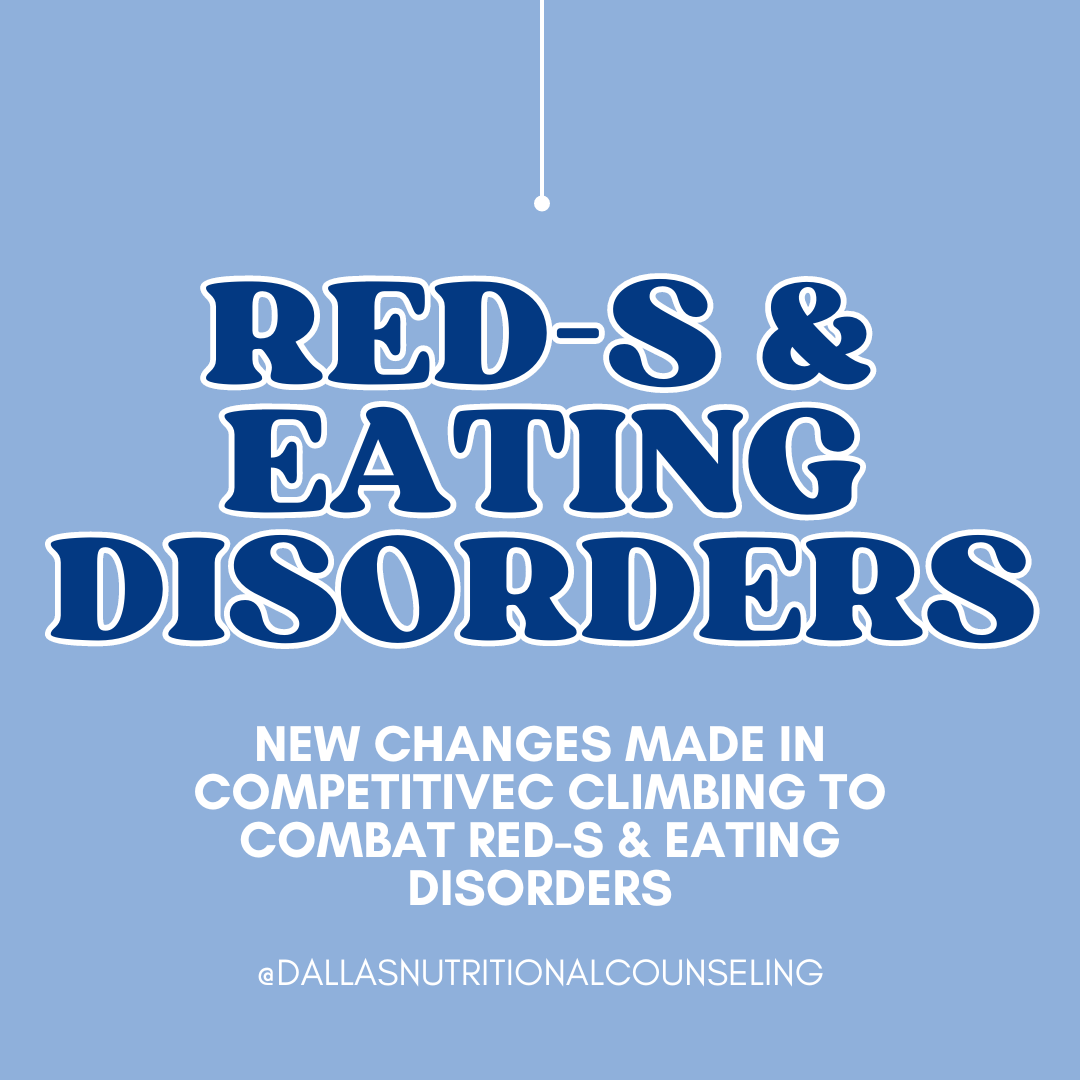Can an Exciting Change Within the Competitive Climbing Community Pave the Way for Policy Change Among Other Sports?
Earlier this year, the International Federation of Sport Climbing released a new policy that may help with early detection of Relative Energy Deficiency in Sport (RED-S) and eating disorders. This effort by an International sport federation is one of the first of its kind and can hopefully open the door for more sports to follow their lead to help combat the rising rates of eating disorders in sports.The policy will have all athletes complete a series of questionnaires and health tests/examinations prior to each season in order to be cleared to compete. This has been a long time coming as many athletes and medical doctors have spoken out about the need to raise awareness of eating disorders in sport and many have even criticized the lack of efforts of many sports organizations to address such concerns.
What is Relative Energy Deficiency in Sport?
RED-S is a syndrome that describes the under-fueling of an athlete. Think of it like a bank account, food is like money, when we expend energy in both our daily lives and exercise/performance we are spending that money to be used as energy for the body. If we don’t put enough money (food) back into the bank to account for the energy we spent, then we eventually go into debt. This debt over time begins to affect the way we perform and our ability to function healthily on a day to day basis. This under-fueling can cause a host of issues both short term and long. A few of these short term effects may be fatigue, loss of menstruation, increased injuries, or frequent illness. Whereas long term effects may be early onset osteoporosis, heart and other organ damage, and fertility issues. RED-S can often be overlooked or happen unintentionally due to the high energy demands of sport.
Hope For the Future - eating Disorders and Sports
The tests that each athlete will undergo prior to the start of each season will be evaluated by RED-S medical experts and will help flag at-risk athletes and help them get the recovery they need before returning to the sport. Although this article addresses the sport of climbing, athletes of all types are at risk of RED-S and eating disorders. If you are an athlete and are struggling with your fueling, we are here to help. There are many pressures that come within “sports culture” and this can affect the way we take care of ourselves. We are so happy to see this policy be instated and hope to see more action being taken within the sports community to help bring awareness to the high amount of athletes struggling with eating disorders and to prevent worsening conditions by intervening early to get them the help they need.
Sports Dietitian and Eating Disorder Dietitian - Supporting Athletes in Their Sport Through Nutritional Counseling
McKayla Mazziotti RD, LD is a registered dietitian providing nutrition therapy at Dallas Nutritional Counseling. McKayla has the unique experience with both sports nutrition and eating disorders. McKayla spent several years gaining experience at a local eating disorder treatment center and then went on to work at a large university in their athletic department. McKayla supported both men’s and women’s collegian sports including both endurance and strength based sports. McKayla is currently accepting new clients for in-person and virtual appointments.



LED Case Consultation - Ethics & Treatment of Longstanding Eating Disorders, Dallas Nutritional Counseling & Angela Harris Counseling professional consultation and supervision for severe and enduring eating disorders